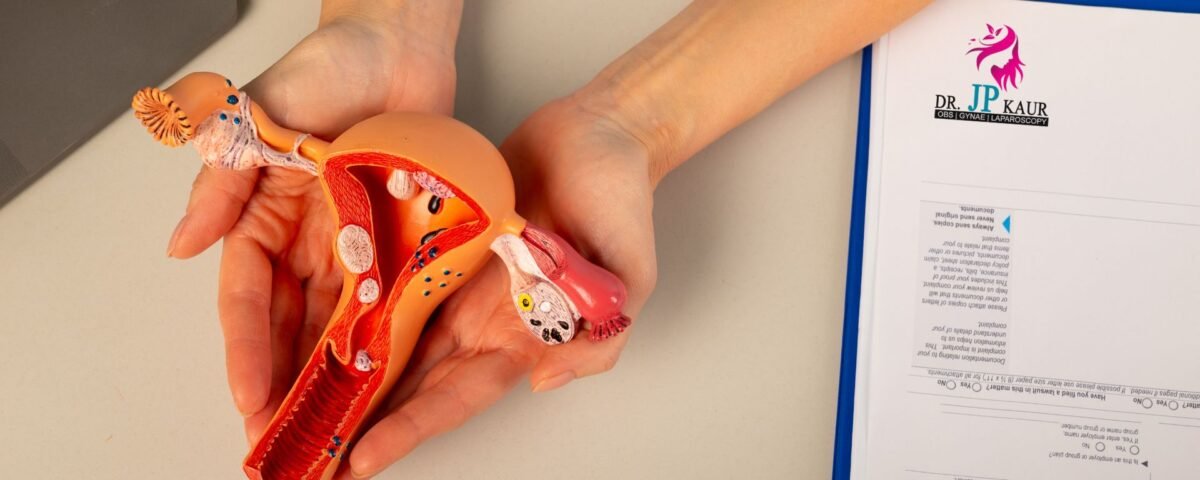
The Importance of Regular Gynecological Check-Ups for Women’s Health
August 18, 2024
The Impact of Stress and Lifestyle on Hormonal Imbalances in Women
December 17, 2024For many couples, starting a family is a significant life goal, but the journey to parenthood is not always straightforward. Fertility challenges are more common than many realize, affecting approximately 10-15% of couples worldwide. Understanding when to seek help and what to expect when you see a gynecologist can make a significant difference in addressing fertility issues effectively. This blog will guide you through the signs that indicate it’s time to consult a gynecologist and what to anticipate during your visits.
When to See a Gynecologist for Fertility Concerns
Fertility issues can be stressful and emotionally challenging, but timely intervention can improve the chances of conception. Here are some key indicators that it might be time to see a gynecologist:
1. Difficulty Conceiving After One Year of Trying:
- If you and your partner have been actively trying to conceive for 12 months without success, it’s advisable to consult a gynecologist. For women over 35, it’s recommended to seek help after six months of trying, as fertility can decline with age.
2. Irregular Menstrual Cycles:
- Irregular periods or cycles that are too long (over 35 days) or too short (less than 21 days) can indicate ovulatory problems, which are a common cause of infertility. A gynecologist can help diagnose the underlying issue and recommend appropriate treatment.
3. Known Reproductive Health Issues:
- If you have a history of conditions like polycystic ovary syndrome (PCOS), endometriosis, or pelvic inflammatory disease (PID), which can affect fertility, it’s important to consult a gynecologist early in your journey to conception.
4. Multiple Miscarriages:
- Experiencing two or more consecutive miscarriages may indicate an underlying fertility issue. A gynecologist can perform tests to identify potential causes and provide treatment options to support a healthy pregnancy.
5. Male Factor Infertility:
- Fertility challenges are not solely a female issue; male factor infertility accounts for approximately 30-40% of cases. If your partner has known reproductive health issues or if semen analysis results are abnormal, seeing a gynecologist together is essential.
What to Expect During Your Gynecologist Visit
Visiting a gynecologist for fertility concerns can feel daunting, but understanding what to expect can help ease anxiety and prepare you for the journey ahead. Here’s a breakdown of the typical steps involved:
1. Comprehensive Medical History Review:
- Your gynecologist will begin by taking a detailed medical history, including information about your menstrual cycle, any previous pregnancies or miscarriages, contraceptive use, sexual history, and lifestyle factors such as diet, exercise, and stress levels. It’s essential to be open and honest during this discussion, as it provides critical insights into potential fertility issues.
2. Physical Examination:
- A physical examination, including a pelvic exam, may be conducted to assess your reproductive organs and identify any abnormalities. The gynecologist will check for signs of conditions like fibroids, cysts, or endometriosis that could impact fertility.
3. Ovulation Assessment:
- To determine if you’re ovulating regularly, your gynecologist may recommend tracking your basal body temperature (BBT), using ovulation predictor kits, or performing blood tests to measure hormone levels. Regular ovulation is crucial for conception, and identifying any ovulatory issues is a key step in diagnosing fertility problems.
4. Diagnostic Tests and Imaging:
- Depending on your medical history and initial examination, your gynecologist may order additional tests, such as blood work to assess hormone levels (e.g., FSH, LH, AMH), thyroid function, or prolactin levels. Imaging studies like transvaginal ultrasound or hysterosalpingography (HSG) may also be used to evaluate the uterus, fallopian tubes, and ovaries for structural abnormalities.
5. Male Partner Evaluation:
- If not already done, your gynecologist may recommend a semen analysis for your partner to assess sperm count, motility, and morphology. Male fertility issues are a significant factor in many cases of infertility, and a comprehensive evaluation of both partners is essential.
6. Discussion of Treatment Options:
- Once all necessary tests are completed, your gynecologist will discuss the results with you and outline potential treatment options. These may range from lifestyle modifications and medication to assist with ovulation (e.g., Clomid) to more advanced interventions such as intrauterine insemination (IUI) or in vitro fertilization (IVF).
7. Emotional Support and Counseling:
- Fertility challenges can be emotionally taxing, and your gynecologist may recommend counseling or support groups to help you cope with the stress and anxiety associated with infertility. Mental and emotional well-being is a critical component of fertility treatment, and seeking support can significantly improve your overall experience.
Conclusion
Facing fertility challenges can be a difficult and overwhelming experience, but you don’t have to navigate it alone. Consulting a gynecologist early in your journey can provide clarity, support, and effective treatment options to increase your chances of conception. By understanding when to seek help and what to expect during your visits, you can take proactive steps towards achieving your dream of starting a family. Remember, every fertility journey is unique, and with the right care and guidance, there is hope for a positive outcome.


